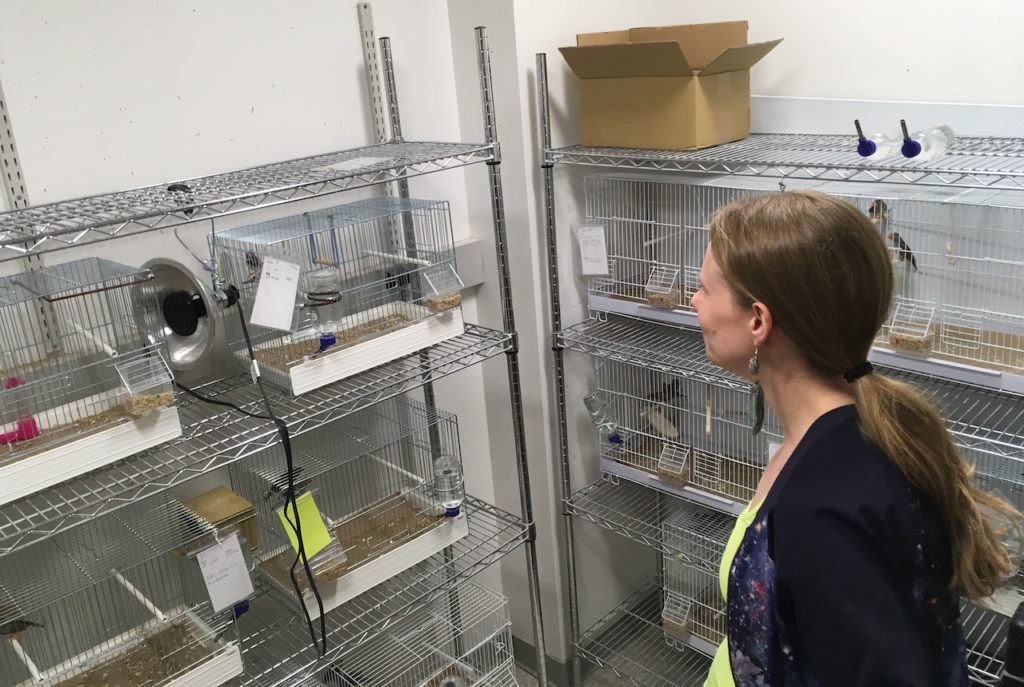
Dozens of zebra finches are learning to sing inside makeshift recording booths in a Vanderbilt lab. Adult and baby birds are paired up to live together, and some have more difficult living conditions than others. The idea is to study how struggling for survival can impair the learning process and how to get around it.
Birds may be the test subjects. But the point is to shed some light on human learning and showing some potential paths to reduce the impact of poverty. And Vanderbilt bioscience PhD candidate
Kate Snyder says zebra finches are a pretty good stand-in because their communication is learned rather than by instinct.
“Only a few other animals exhibit this, whales possibly dolphins, bats and then songbirds and humans,” Snyder says.
They start out begging, like a baby’s first cries. A few weeks into life, they begin learning from the grown finch they’re paired with, known as a tutor. The young bird starts picking up parts of the song, almost like a babbling baby. And after a few months, the song crystalizes.
So Snyder is recording every moment of the 90-day process. Along the way, she’s adding some adversity like a child raised in poverty might face. Snyder is making some of the songbirds rummage through piles of shells to find their seeds.
“And then some have a much more privileged life where they get just a seed cup full of seeds that they don’t have to work very hard for.”

Snyder says there’s already some evidence that young zebra finches that spend all day looking for food take longer to learn their song. Or they can develop permanent impairments.
“Birds can stutter,” she says. “And there’s some research that looks at how stuttering in birds is similar to stuttering in humans.”
The real insight — though — could come from attempts to level the playing field.
“We’re looking at how we can make their lives and their learning ability better. So we’ll take certain birds and give them even more enrichments.”
They’ll still have to work for food, but to outweigh the negatives they’ll get some positive stimulation — like a mirror in their cage or some classical music piped in. Whatever Snyder finds won’t lead directly to policy recommendations, but she says it might give researchers of human behavior a good place to start.


